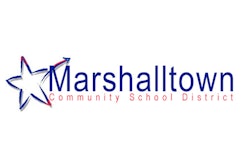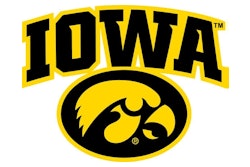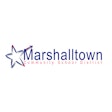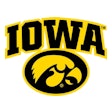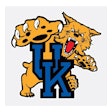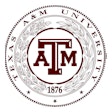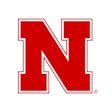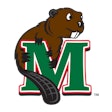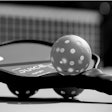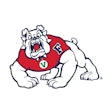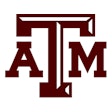Nick Davidson came to Davenport University five and a half years ago as a part-time assistant men's basketball coach and was soon put in charge of recreation and intramurals.
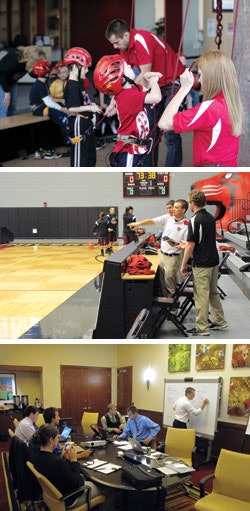 Davenport University's student employees open and close the recreation center, perform game operations for university athletic teams, help run special events and even help manage the department's budget.
Davenport University's student employees open and close the recreation center, perform game operations for university athletic teams, help run special events and even help manage the department's budget.Nick Davidson came to Davenport University five and a half years ago as a part-time assistant men's basketball coach and was soon put in charge of recreation and intramurals. In anticipation of the fall 2008 opening of the Davenport University Student Center, Davidson was named assistant director of the center in April 2008, and was joined the following month by the new director of the center, Mike Stodola, longtime facilities manager at nearby Grand Valley State University. As happens at most small colleges, 85,000 square feet of new recreation space meant the number of recreation department workers was about to expand significantly - although the budget to pay them, less so.
"We drew up an organizational chart that showed how we could operate with students, because that's what we were given," Davidson says. "Basically, the administration said, 'You have a director and an assistant director: Figure it out.' Still, we thought we could function appropriately and at a level of service that we were expecting."
The director and assistant director figured it out. First, they hired two freshmen, who worked with Stodola, Davidson and the school's human resources department to screen candidates from within the 3,700-student community. The initial mass hiring numbered 70 students.
Referring to the National Intramural-Recreational Sports Association's 2009 salary census that gathered general information on college recreation payrolls, Abe Drabkin, NIRSA's director of marketing, says that Davenport's 35-to-1 ratio of student employees to professional staff is on the high side but not that far off the 20-to-1 mean the association found at institutions with fewer than 5,000 students. Granting the difficulty in making apples-to-apples comparisons - for example, NIRSA's employee figures include intramurals referees, whereas Davenport's don't - Davenport rec sports is no different than most other college rec departments in its heavy reliance on student workers.
"The Residence Life and Recreational Sports departments are probably the two biggest employers of students on any campus," notes Mary Callender, NIRSA's director of membership and publications. "We don't have any hard data on this," she adds, "but a good percentage of our members have come up through the ranks. Not many start out from day one saying they're going to work in a campus rec center; most people don't even know that you can make a career out of that kind of job."
Davidson and Stodola say that even if NIRSA's statistics show Davenport recreational sports as representing something close to typical, their department's nurturing of its student employees makes it a model program in an association known for its wide focus on student development. Davidson points to Logan Weis, the Davenport University Student Center's student facility manager and one of the first two hires back in 2008, as representative of his program's "empowered" young workers.
"Everyone has a lot of student employees; we know that," Davidson says. "But Logan runs the rec department. He's got a $30,000 annual budget that he's responsible for, he's got three coordinators who work under him, and underneath them there are three student assistants who help put on events, intramurals and leisure activities. Our students open and close, and they're responsible for all game operations for all our NAIA intercollegiate athletics and club sports. They work the scorer's table, put up our inflatable Panther head, take tickets, count the gate receipts at the end of the night and deposit the money. The level of empowerment we give to our students is the difference in my opinion."
"The student center is not only great moneywise while we're going to school, it's also a great classroom for us," says Weis, a sports management major on track to graduate this fall. "A lot of times in sports management and marketing classes, other students have looked to me for answers because of the experience that I've gained at the student center. Our main objective here is developing students into leaders in this profession. It has been a great platform for what I want to do later on in life."
Davenport's student employees are all given card access to all areas of the building, and the department's eight building managers oversee event functions and different building components (such as the climbing wall, fitness center and front desk). A regular Monday morning meeting, during which student employees go over the building schedule and get their assignments for the next two weeks, is attended by neither Davidson nor Stodola. The two professional staffers instead sit in on Wednesday's "facilitated meeting," but more as observers who will occasionally "interject and call timeouts," as Davidson says. "We allow them to make decisions, so they don't need to come to us every second to ask a question. They have authority."
Callender believes, anecdotally at least, that NIRSA members tend toward limited authority, some allowing students to run the show only "on evenings and weekends with professional staff there" and others insisting on professional staff being present at all times. "There's quite a bit of room for interpretation," she says, "but our institutional members are big on student development, as NIRSA is. It's very much a field where the professionals are mentoring the students along the way."
The University of Richmond's rec sports department believes in student development even as it rethinks it. Tom Roberts, the school's director of recreation and wellness, counts 120 paid student employees, many of whom have roles in operating the school's four-year-old, 90,000-square-foot Weinstein Center for Recreation & Wellness. He and his 14 full-time professional staff members (some of whom are academics or club-sports coaches, rather than facility operations personnel) also can depend on the contributions of 60 part-time workers (including personal trainers, massage therapists, fitness instructors and the like). Eight top-level student employees carrying the "facility manager" title have access to the Weinstein Center so they can open and close the building in the absence of professional staffers, but none of the students have access to budgets or other financial aspects of the business.
"As a department of the university, we want to do our best to employ students, as it teaches good work ethic," Roberts says. "But more and more, especially at the higher-level positions where people are overseeing multimillion-dollar facilities, we're moving toward a model of hiring from the outside. Those positions do require a lot of training, a level of maturity, and probably the biggest thing is a high level of responsibility and dependability. Students, in my opinion, tend not to have a great work ethic, and it comes back to haunt us. We have community members who use our facility, as well as outside rentals, and when a student doesn't show up at 6 a.m. to open the building when they're supposed to, it's a poor reflection on our university and our department."
Though he speaks on the topic with a certain weariness resulting from 20 years of experience as an employer at Richmond, Roberts says it's understandable that with the school's high academic standards, students put their primary focus there. Once you factor in students' desire for an active social life, it's no wonder that a job in the rec center "falls down to priority number four, five or six," Roberts says. "We're probably no different than anybody else. Everybody's going to tell you that, 'Oh yes, we want to give jobs to students,' but it is becoming more difficult to get reliable students."
Roberts has found that older workers from off campus can be counted on to come to work on time and, because they might work longer hours than a student who has classes throughout the work day, can better answer guests' questions about the facility and its various programs. "People walk in and come to the member services desk, and they have a thousand questions," he says. "When it comes to somebody who can provide answers and be on top of what's happening every hour during the entire day, we have full-time people now for those situations. I speak the same language as NIRSA, but if we can't serve members of the campus and community very well and answer their questions when they come in, then we're doing them a disservice."
Davidson says that's a primary reason his department focuses so heavily on customer service. Integral to the student workers' performance is an ongoing member survey effort in which "GREAT" awards (the letters stand for greeting people properly, responding to requests in a timely manner, exceeding expectations, actively listening, and thanking them) are regularly given to service teams in five main areas of the facility. Students nominate potential recipients and hand out letters (all five letters gets the winner a trophy) at student-led 7:30 a.m. meetings, and Davidson says the seriousness with which students take customer service (the rec center's awards program mirrors a trophy-less, university-wide customer service effort) can be seen in the student center's current overall customer satisfaction average of 4.87 out of a possible 5.0.
"We wanted to try to make sure that we were living up to the standards of the rest of the university, but we took it to a little bit different level," he says. "Our students who are working toward their degree understand that if you're good at customer service, you're going to fill a need somewhere, because customer service is important in every industry. Based on their survey scores, they're getting the message."
Students who haven't gotten the message appear to be a rarity at Davenport. The reason, Davidson says, is that (unlike, for example, Richmond) Davenport offers degrees in sport management and marketing, which tends to make their paid student center internships more valuable than just a job. "When we first started hiring, to a certain degree we had to take who we could get," says Davidson. "This is a really attractive experience for students in those majors, though, so now the vast majority of our workers are in those degree programs. Eventually, the goal is for all of them to be sport management and marketing majors."
Davidson characterizes his department's approach to problem employees as "developmental," adding, "We give them a lot more chances than a club might." But Stodola believes their front-end work has borne the most fruit, from careful scrutiny of prospective employees to the decision to not guarantee positions to students from year to year. "If you're doing an excellent job during the year, then you're going to be a candidate to work over the summer months, but you're not necessarily guaranteed a position the following year," Stodola says. "I think that can be a very strong motivator."
Noting that since opening the student center, he could count the number of firings on one hand, Stodola adds, "We've had the point made to us by administrators in the campus HR office that we seem to have fewer write-ups than other university departments. I think it's clear that, beyond anything we've done, job satisfaction is high in this industry. It's exciting and dynamic; you've got athletic contests and enthusiastic people, and no two days are the same. That said, the job involves a lot of long hours, and it requires working when other people are playing. In a lot of ways, it's a very demanding setting.
"We don't sugarcoat that with our students. We try to spread around the inconvenience and weekend hours, because that will be their reality when they're out working in the field. If they're not up to it while they're a student, they're probably not going to thrive in a full-time work setting."














